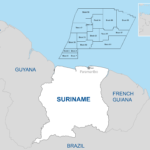Brazil’s Central Bank (officially known as Banco Central do Brasil, BCB) took an important first step in launching a consultation which could have a significant impact on the bitcoin transaction landscape.
This proposal is especially notable because it intends to prevent the transfer of stablecoins–cryptocurrencies designed to maintain a stable value tied to a fiat currency, such as Tether’s USDT–to self-custody wallets, including popular platforms like MetaMask.
According to the central bank’s draft regulations, it is forbidden for a virtual asset provider to transfer virtual assets denominated in foreign currencies into a wallet that you control.
The policy is part of an overall draft regulatory framework and is available to the public for consultation up until 28 February 2025.
This project is a proactive step by the Brazilian Government to improve market monitoring, enforce compliance and regulate Brazilian capital outflows within a rapidly changing financial environment.
Why the Regulation Was Created
These proposed laws are a result of the Brazilian government’s desire to increase its control on the foreign exchange markets and monitor the increasing use and prevalence of stablecoins in Brazil.
The consultation document, and statements made by officials in support of it, indicate that the change would involve modifying previous 2022 resolutions regarding providers of virtual assets services (PSAV), which operate on the foreign exchange market.
The BCB is not content with restricting transfers of stablecoins. It has plans to broaden the definition to encompass a range of other activities, such as sales, payments, custody and cryptocurrency transactions in foreign currency.
This regulation will require PSAVs to give the BCB detailed information on customer verification, transaction value, as well as a range of operational data that is relevant for maintaining market integrity.
Stablecoins are gaining popularity in Brazil
This proposal is important because of the growing popularity of stablecoins.
In comparison with their volatile cryptocurrency counterparts, stablecoins have gained in popularity. They have the ability to keep a value which is tied to a fiat (like the US dollar).
Circle has revealed that USD Coin (USDC), via local transfers to banks, entered the Brazilian and Mexican market recently. This is an example of a new trend.
Circle stated clearly that its stablecoin could now work flawlessly with the real-time payments systems developed by both countries. This would allow for quicker, more efficient and secure digital transactions.
Self-custody wallets: a challenge.
To combat illegal financial activities, centralized exchanges have imposed Know Your Customer laws that require all digital asset transactions to be subjected to strict identity verification.
The self-custody Wallets offer a very interesting and different scenario.
The wallets offer a high degree of user privacy, and allow users to control their digital assets without divulging personal data for payments.
The BCB is currently conducting a public consultation, and this feature that distinguishes self-custody Wallets will be important.
Many people see digital wallets as a way to express financial freedom, since they give users complete control of their assets, without the use of intermediaries. However, some argue they are a regulatory hole that can be used by criminals for illegal financial activity, undermining government efforts.
Global Regulatory Trends: A Reflection
This proposal by the BCB is not an isolated one; it’s part of a global trend towards tighter regulation for cryptocurrencies, with particular focus on their implications for national economies and international commerce.
Brazil, one of Latin America’s fastest-evolving markets, is working on aligning its cryptocurrency policy with global standards. This shows a commitment from financial authorities to maintain market stability and adapt to the wave of digital disruption affecting financial services.
As the consultation period unfolds, stakeholders–including individual crypto users, service providers, investors, and regulatory bodies–continue to pay close attention to the possible consequences of these proposed changes for the future of cryptocurrency transactions in Brazil.
This could be a precedent-setting event for nations across the region as they address the many challenges and opportunities that the cryptocurrency industry presents, particularly Brazil’s position at the forefront in this ongoing and critical conversation on cryptocurrency regulation.
Brazil’s crypto transactions are at a crossroads
The future of cryptocurrency in Brazil is at a crossroads as the Brazilian Central Bank prepares a reinterpretation of the legal framework that governs stablecoins.
The delicate balance between regulatory and financial control, and the progress of the consultations, will be closely monitored not just in Brazil, but around the globe, with other countries examining and possibly responding to Brazil’s regulatory strategies.
Decisions made today could influence the shape of the crypto market in years to come. They will affect how digital currency is managed, understood and used within the larger economic landscape in Brazil as well as elsewhere.
As new information becomes available, this post Brazil’s Central Bank Pushes for Stablecoin Transfer Restrictions Under New Regulation may be updated.
This site is for entertainment only. Click here to read more





